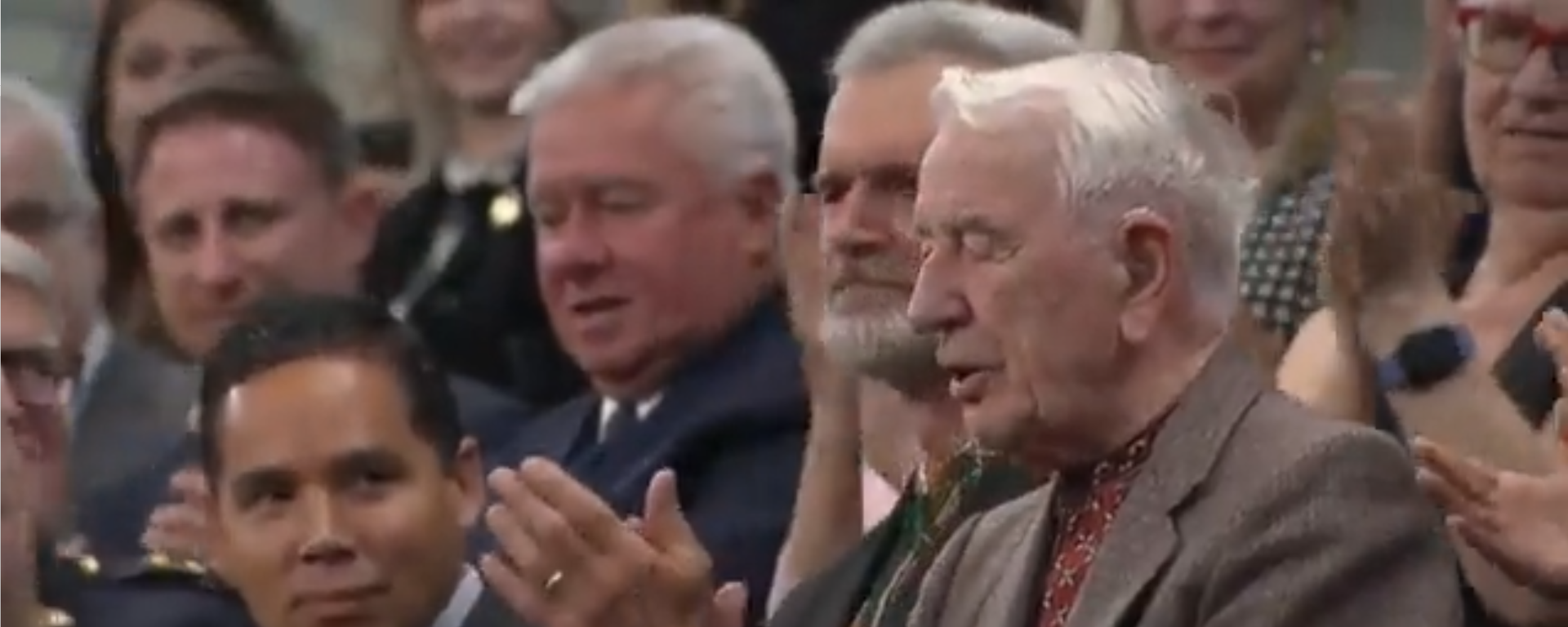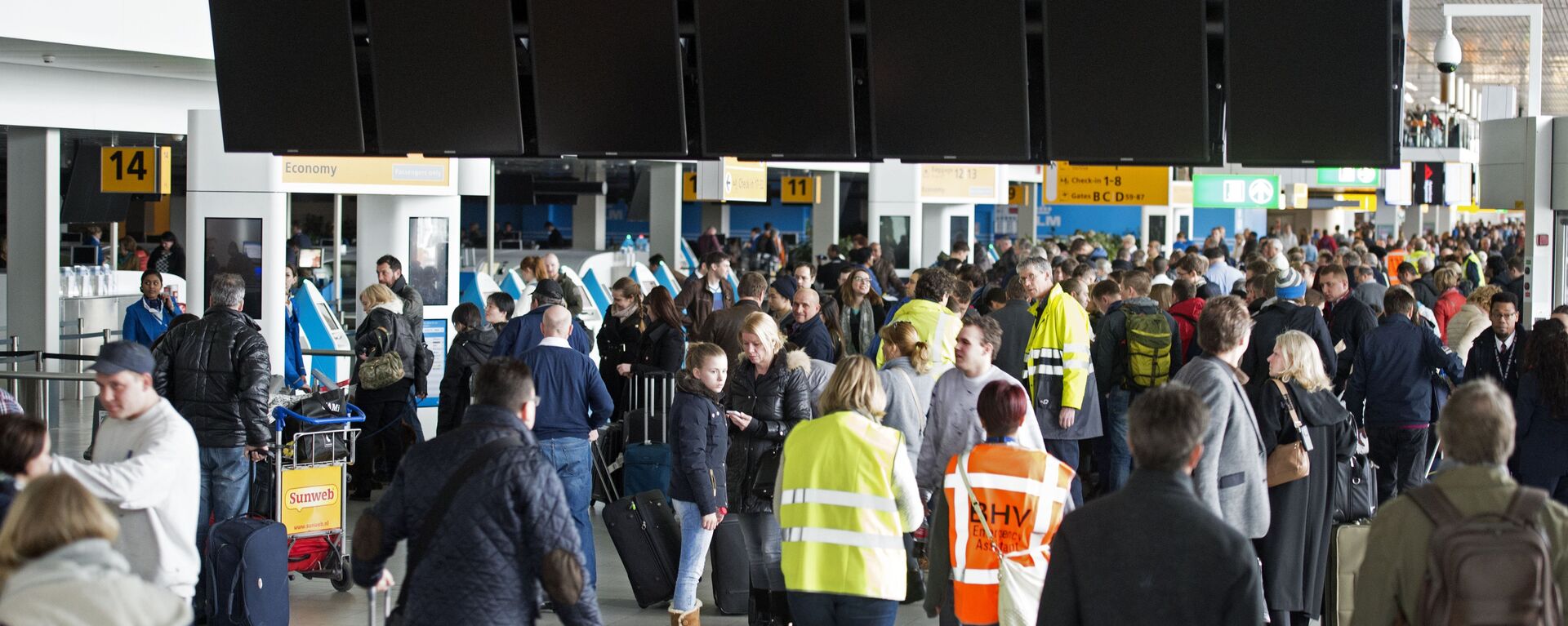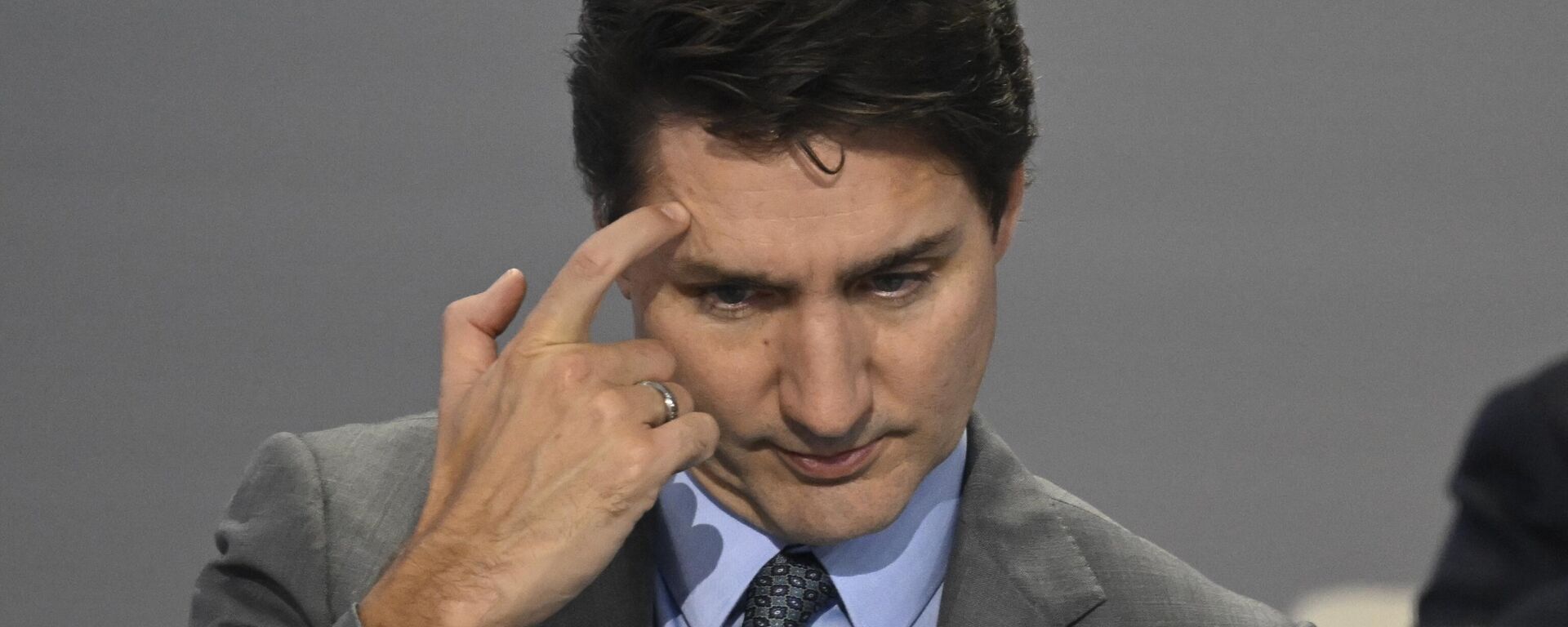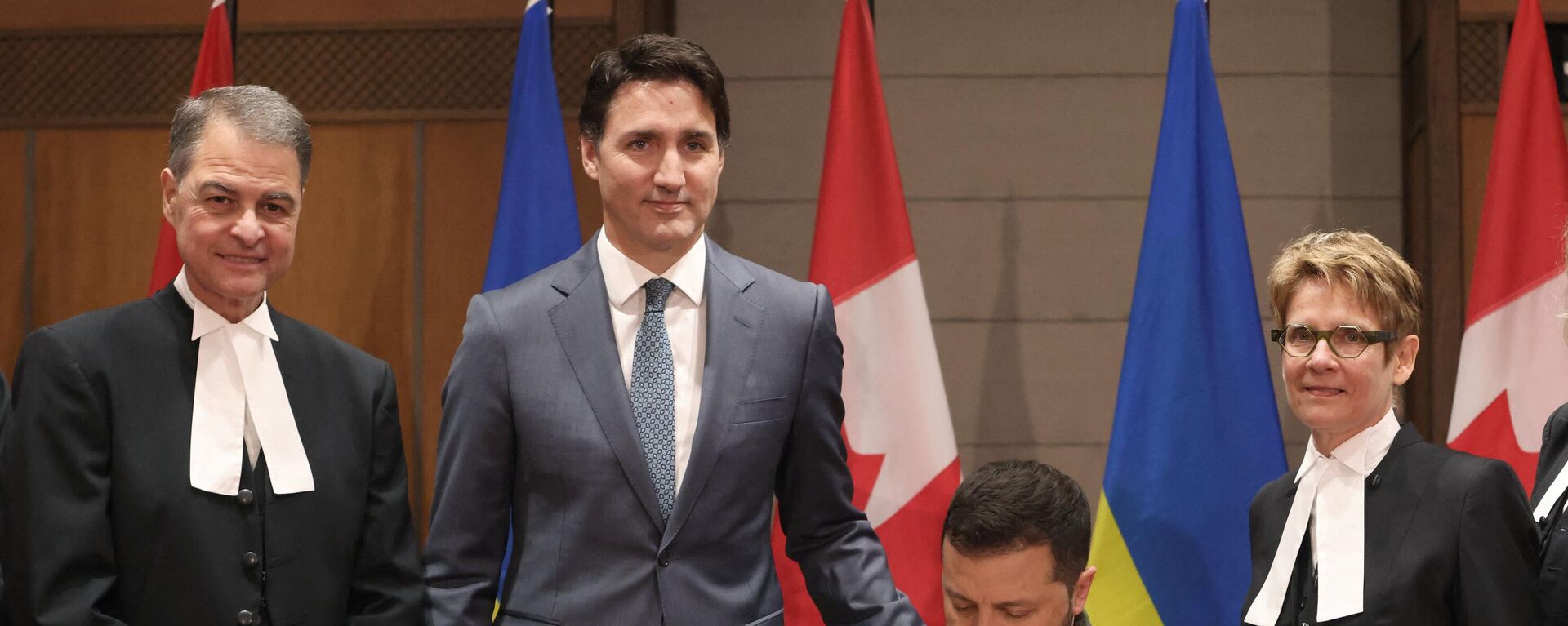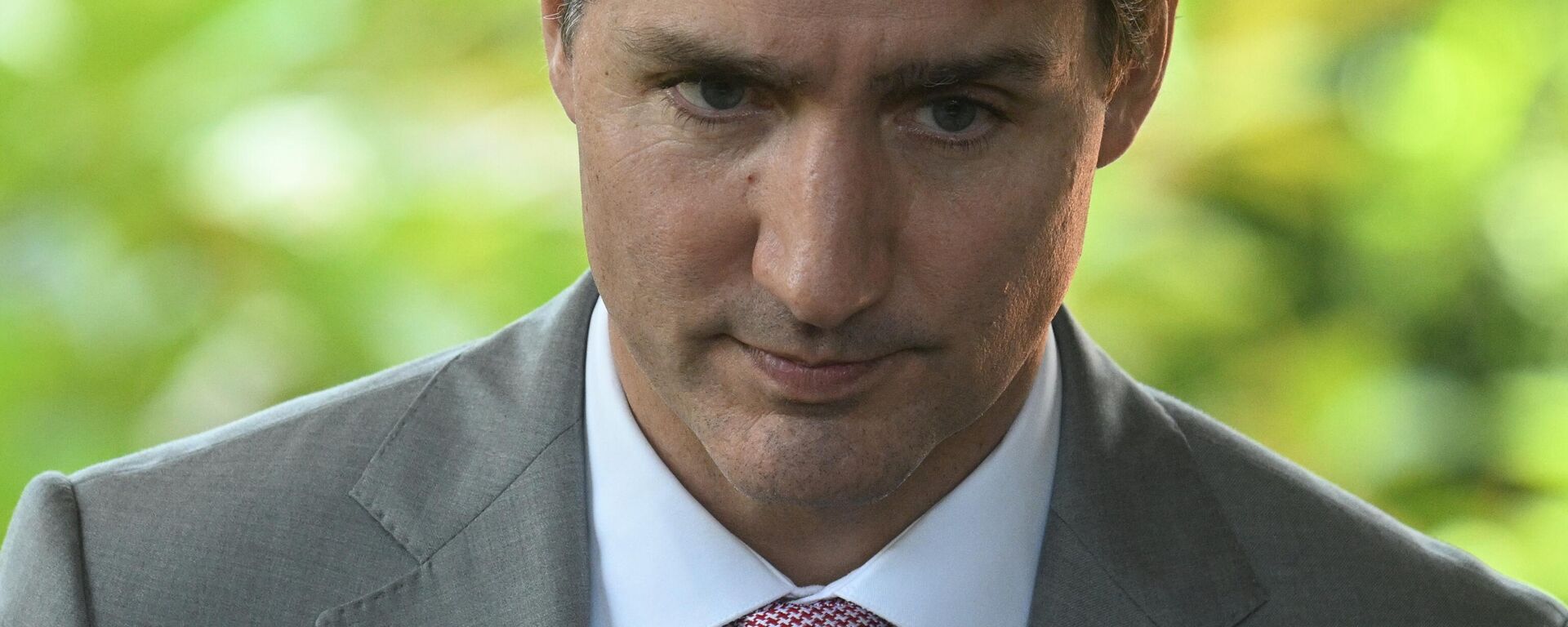What’s Inside Trudeau’s ‘Orwellian’ Speech Law Threatening Jail Time for Thought Crimes?
12:52 GMT 14.03.2024 (Updated: 13:28 GMT 14.03.2024)
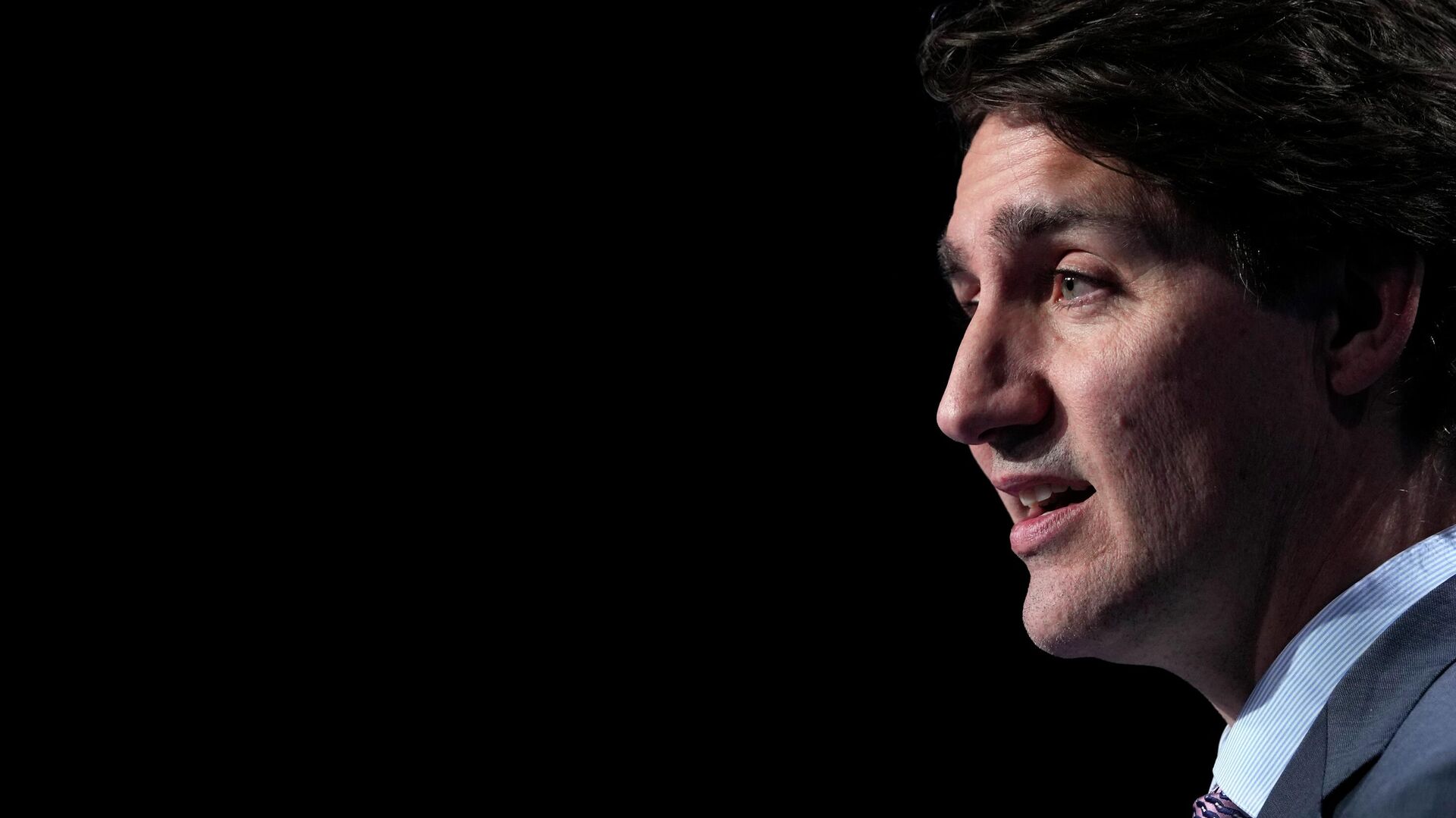
© AP Photo / Manu Fernandez
Subscribe
Canadians got their first rude awakening about the limits to their constitutional freedoms during the Freedom Convoy protests in February of 2022, when, in a crackdown on truckers objecting to draconian Covid restrictions, the Trudeau government invoked the Emergencies Act, allowing authorities to jail organizers and seize their bank accounts.
Sweeping “online safety” legislation in Canada proposed Liberal Prime Minister Justin Trudeau’s government threatening penalties up to life imprisonment for speech crimes, and real sentences for thought crimes, have civil rights groups sounding the alarm.
The legislation, known as the Online Harms Act (Bill C-63), was tabled by Justice Minister Arif Virani in February, and proposes amending Canada’s Criminal Code to “promote the online safety of persons in Canada, reduce harms caused to persons in Canada as a result of harmful content online and ensure that the operators of social media services…are transparent and accountable with respect to their duties.”
What’s Wrong With the Bill?
At first glance, some of the legislation’s content seems reasonable, with Virani leaning into the bill’s benevolent goal of “protecting” children “from online sexual exploitation, hate, and cyberbullying.” The draft law would require the mandatory reporting of online child pornography, the deletion of content advocating self-harm, and punishments for persons accused of “advocating genocide” or “hate crimes” based on “race, national or ethnic origin, language, color, religion, sex, age, mental or physical disability, sexual orientation or gender identity or expression.”
Upon deeper inspection, however, the problems with the legislation quickly start to become evident, with penalties for speech crimes ranging from two, five, or ten years in jail or even “imprisonment for life,” and the extremely broad and liberal definition of “hate crimes” (including crimes a judge deems someone “will commit” at some point the future) sparking concerns that the law will be used to crack down on political opponents, or anyone speaking out against powerful people or groups.
The Canadian Civil Liberties Association has called attention to the bill’s “draconian penalties,” and to the sweeping powers the proposed “digital safety commission” and “digital safety ombudsperson” would receive to regulate social media, warning that the draft law threatens to undermine “the principles of proportionality and fairness” in Canada’s justice system, and chill speech thanks to inevitable problems in distinguishing between “political activism, passionate debate and offensive speech.”
Margaret Atwood, arguably Canada’s most honored living author, slammed the legislation as “Orwellian” in an X post last week, warning that “the possibilities for revenge false accusations plus thoughtcrime stuff are so inviting” and comparing it to the ‘Lettres de Cachet’ – proclamations signed by ancient kings of France containing orders to enforce arbitrary judgments which could not be appealed.
Conservative author Stephen Moore went further, calling the legislation “the most shocking of all the totalitarian, illiberal, and anti-Enlightenment pieces of legislation that have been introduced in the Western world in decades,” and saying it sets “a new watermark in rising totalitarianism in Western societies” in the wake of Covid.
The proposed ‘life in imprisonment’ “means someone who writes something that a government official decides is ‘advocating genocide’ will face a longer maximum sentence than someone who rapes a child,” Moore warned.
“And what might count as ‘advocating genocide’? Today, there are prominent politicians around the world who say that supporters of Israel are advocating the genocide of the Palestinian people and that supporters of Hamas are advocating genocide against Jewish people. Imagine if they were in power. Under Trudeau’s legislation, would they not be able to send their political enemies to prison for life?” the author asked.
Conservative Party Leader Pierre Poilievre slammed the proposed Online Harms Act for pushing “Justin Trudeau’s woke authoritarian agenda,” and said he believes the draft law would definitely be used to censor political speech if approved. “What does Justin Trudeau mean when he says the words ‘hate speech’? He means the speech he hates. You can assume he will ban all of that,” Poilievre said.
“I point out the irony that someone who spent the first half of his adult life as a practicing racist, who dressed up in hideous racist costumes so many times he says he can’t remember them all, should then be the arbiter of what constitute hates. What he should actually do is look into his own heart and ask himself why he was such a hateful racist,” Poilievre said, referencing the surfacing of scandalous photos in 2019 of Mr. Trudeau wearing black and brown face costumes at parties in his youth.
Civil rights advocates and free speech activists have questioned the need for new legislation to reduce online harms, pointing out that Canada’s Criminal Code already threatens stiff penalties for crimes related to child pornography and the abuse of children, and crimes like libel and hate speech.
What Happens Next?
The Online Harms Act is the second time the Trudeau government has sought to restrict free speech online through legislation, with an earlier version of the bill known as C-36 introduced in 2021 but scrapped after an election was called and the parliament was dissolved.
The new bill is undergoing a review by a special parliamentary committee and by the Canadian Senate, with both chambers able to propose amendments before a parliamentary vote is taken.
Trudeau presides over a minority government, with the Liberals requiring the support of the New Democratic Party, which has expressed support for the Online Safety Act and suggested it is “long overdue.”
The bill will require a majority in Canada’s 338-member parliament to pass, with the Liberals and the NDP together holding 181 seats, which would be enough to approve the bill under Canada’s strict tradition of party discipline.
Canadians aren’t expected to go to the polls until 2025, but elections could be called earlier pending a decision by Trudeau, or a crisis which pushes parliament to vote no confidence in his government.
A Peterborough, Ontario resident sponsored by a Conservative lawmaker organized a petition to the House of Commons in late 2023 calling for a no confidence vote, collecting nearly 400,000 signatures before Christmas, but the NDP has expressed no signs of interest in dissolving their pact with the Liberals.
Not Trudeau's First Foray Into Free Speech Crackdown
The Online Harms Act is just one of a panoply of legislation the Trudeau government has proposed or already passed to restrict the space for free speech in Canada. In October of 2023, the Canadian Radio-Television and Telecommunications Commission broadcasting watchdog announced that online content providers would be forced to register with the regulator if their annual revenues exceeded $10 million Canadian (about $7.3 million US). Free speech activists and independent journalist told Sputnik at the time that the effort was designed for the state to “take absolute control back over media” amid traditional media’s loss of ratings and loss of control over the narrative thanks to the rise of independent online media.
Trudeau suffered a personal defeat to his freedom of speech and protest-related agenda in January after a federal court judge ruled that his decision to invoke the Emergencies Act against Freedom Convoy protests in 2022 was “not justified” and infringed Canadians’ constitutional rights.
Canada is not alone in introducing unprecedented restrictions to free speech, with Australia and the UK recently introducing similar legislation to “stem hateful online content” and rein in independent media.

